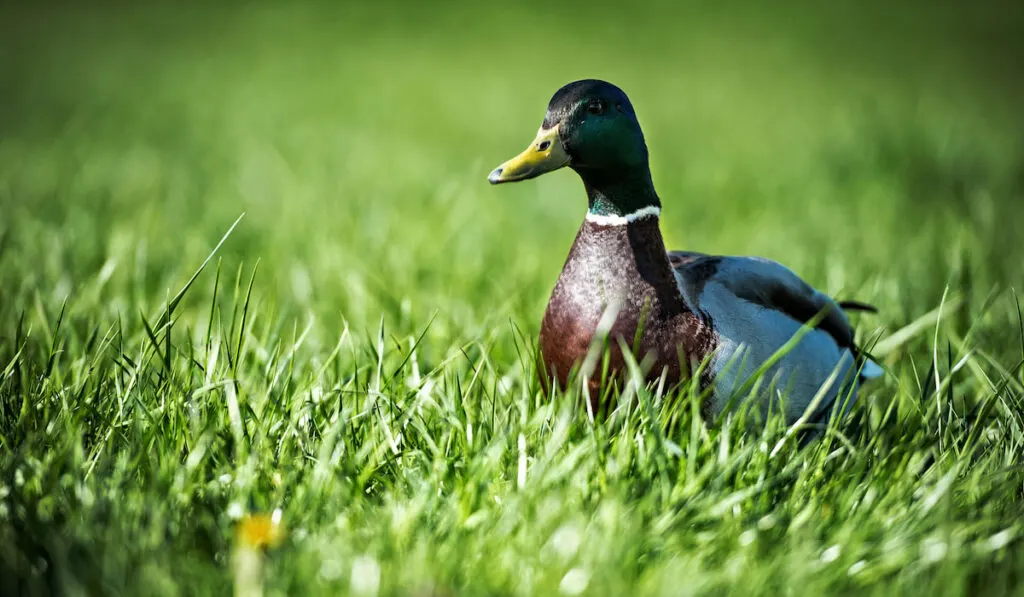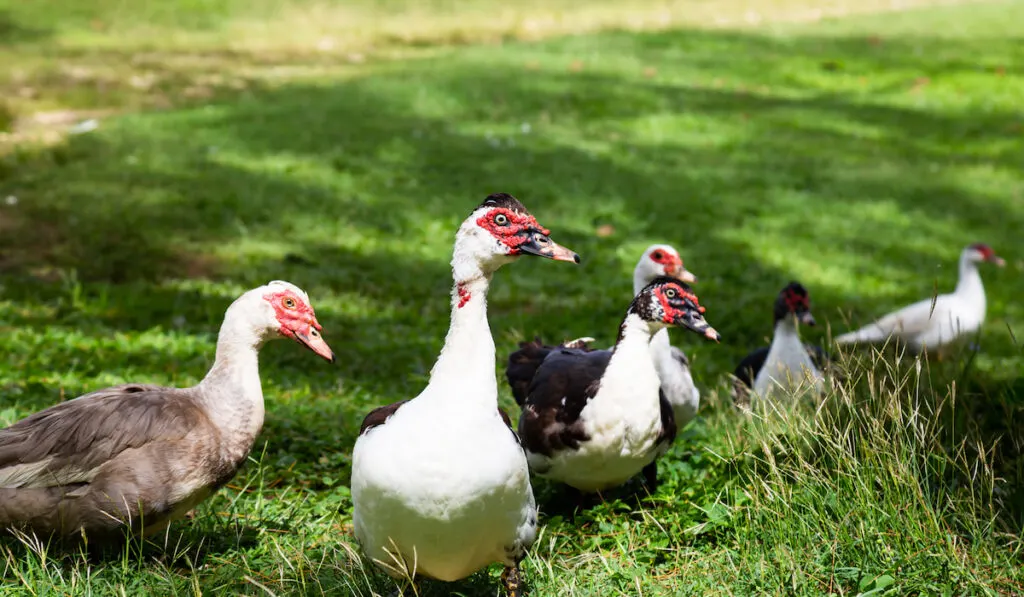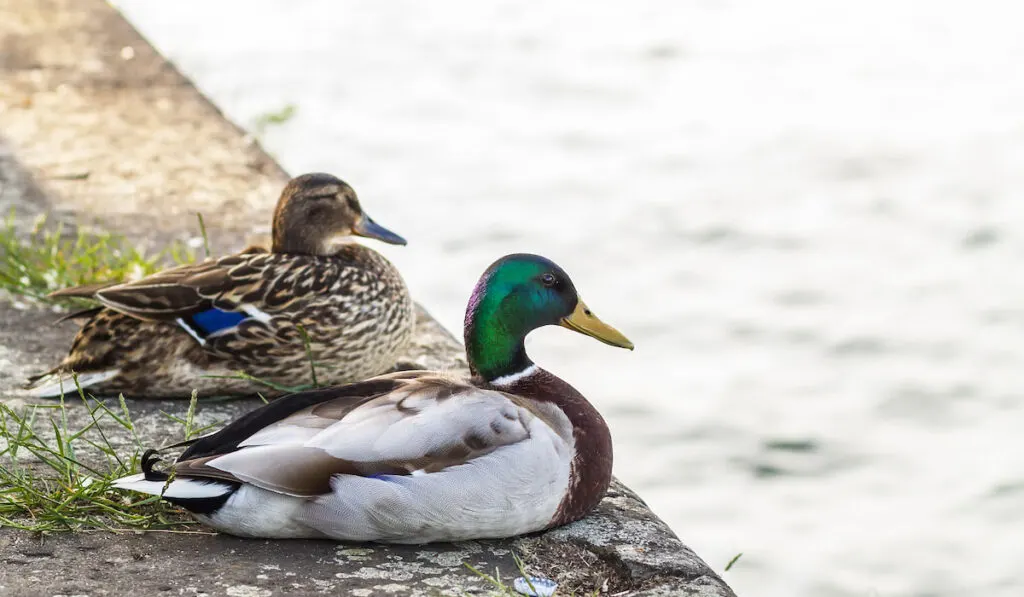Ducks are wonderfully diverse birds that have proved to be a significant boon for humanity. Their ability to provide sustenance through eggs, meat, and feathers has given rise to dedicated duck farms. Some ducks are kept as pets, and in fact, they have been instrumental in therapy for providing friendship.
So, how much do ducks cost?
The cost to buy ducks ranges from $5 – $200 according to species, age, location, and the selling party. Local stores sell ducklings for around $5 each and adults for $10. Local duck farms can cost up to $20.
They eat 6 to 7 ounces of food every day. Brooders and other equipment average $225-$400 altogether.

There is a lot more to caring for ducks than feeding them and sheltering them. Understanding a little of the psychology behind their behavior will prevent most beginner frustrations and help to set you up for a much smoother experience.
Table of Contents
How Much Do Ducks Cost?
Ducks can be expensive to buy and care for, especially when you’re just starting. Their rarity adds to their value, as does the number of eggs they lay each year.
Magpie Ducks, for example, can lay around 290 eggs per year. The Buff / Orpington lays fewer eggs than most ducks, at 200, but they make ideal meat birds because of their bigger size.
Ducks are generally affordable, and the start-up costs may be your biggest expense, depending on what materials you have available. The average costs for particular duck breeds are:
- Khaki Campbell $3.60
- Rouen – $6
- American Pekin – $10
- Welsh Harlequin – $15
- Magpie – $16
- Silver Appleyard – $17
If you’d like a particular breed of duck, there is a good chance you’ll have to order them online. Otherwise, you can try your luck on Facebook or Craigslist, as well as your local farmer’s market. If it’s an exotic species you want, be prepared to pay up to $200 each, and you may require a permit and license from your local city authorities.
Start-up costs include a brooder, the cost of building a shelter, feed, hay/shavings, and a run with protection from predators. If you’re somewhat of a creative scrounger, you’ll be able to reduce your expenses significantly. Brooders cost around $20 – $75, but if you have a large tub or similar container that you could use, don’t hesitate to be a little creative.
Depending on whether you’re building from scratch or simply renovating, it can cost up between $150 – $400. Pine shavings are the usual choice at around $50.
Predators are also something to consider. Raccoons, red foxes, minks, badgers, and coyotes are predators to watch out for, so ensure that your duck house is locked up tight!
It costs about $18 for a bag of 50-pound duck feed, and the number of bags you’ll need depends on how many ducks you want to purchase. Fourteen adult ducks consume around 100 pounds of feed a month. It’s recommended to feed ducks once in the morning and then again in the evening.
What Feed Is Suitable For Ducks?

Some people will tell you that feeding ducks chicken food is acceptable, but do not believe them! Chickens and ducks require different nutrients because although they are both birds, they have biological differences; one can swim while the other can’t. Furthermore, ducks require more niacin (Vitamin B) than chickens.
As such, healthy food choices for ducks are those that are most natural to them. They may include mealworms, chopped vegetables, frozen peas, corn, grapes, wheat, grain, barley, and duck pellets that you can purchase.
Avoid feeding ducks any junk food like crackers or bread, and especially avoid foods containing coccidiostats because they are very harmful to ducks.
Duck Farming: How Do You Make Money?
If you have a mind to earn an income by establishing a duck farm, how would you go about it? Ducks are bred for their meat, eggs, and feathers. The U.S. breeds over 30 million ducks each year, raising many ducks on small farms and in backyards.
Duck eggs are larger than their chicken counterparts and can generally fetch a better price. Most people prefer chicken eggs, but those who like duck eggs will pay a bit more for them.
Furthermore, duck eggs can be classified as cooking or hatching eggs. Eggs with hatching potential can be sold at four times the price of regular cooking eggs.
Duck meat is considered a specialty entre in many fine-dining restaurants. They are usually ready for processing after 49 days, according to industry standards. Ducks are also shipped abroad, especially to countries like France, which produces around 200,000 tons of duck meat every day.
What You Need To Know Before Getting Ducks

First and foremost, ducks are incredibly messy! Even if you were to clean their brooders every day, which will be a requirement, they would stay messy.
Ducks have to mix their food with water before eating it, which contributes to a messy and often stinky living space. You’ll have to replace their water at the start of every new day.
They tend to poop a lot because they mix all their food with water, so they have an excess of water in their bodies. Furthermore, they can be incredibly loud and vocal, which may be a problem if you have neighbors. Ducks are routine animals, and so when something is abnormal, they tend to become loud to let you know!
Ducks live in flocks, so it’s vital that you do not buy only one duck, or they will be miserable. They love to wander and nest in outlying areas, and so you may find eggs all over the place!
Ducks are great at eating bugs and are adaptable to cold weather. They adore swimming, so get a kiddie pool if you don’t have any nearby water.
Conclusion
Whether you’re looking to buy a duck as a pet or to set up a duck farm, you can follow the guidelines in this article. Check your local farmer’s markets first for the best pricing, and avoid any foods which contain coccidiostats. Good luck and enjoy the benefits and products your ducks give you!
Resources
- https://www.youtube.com/watch?v=xmdUogNhN1Q&ab_channel=CogHillFamilyFarm
- https://www.youtube.com/watch?v=ldeWIhZTwhc&ab_channel=GoldShawFarm
- https://www.quora.com/How-much-does-a-duck-cost
- https://www.quora.com/Which-is-less-expensive-to-raise-ducks-or-chickens
- https://www.quora.com/Michael-breeds-chickens-and-ducks-Last-month-he-sold-50-chickens-and-30-ducks-for-550-This-month-he-sold-44chickens-and-36-ducks-for-532-How-much-does-a-chicken-cost-and-how-much-does-a-duck-cost-A-chicken-costs-and
- https://dodge.extension.wisc.edu/files/2013/03/Raising-Ducks-as-a-4H-project-doc.pdf
- https://www.backyardchickens.com/threads/what-was-your-budget-start-up-cost-for-raising-ducks.647422/
